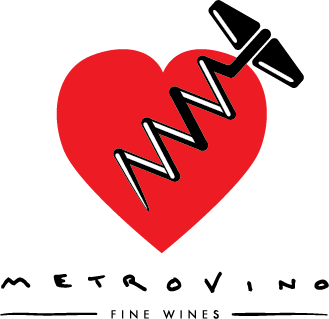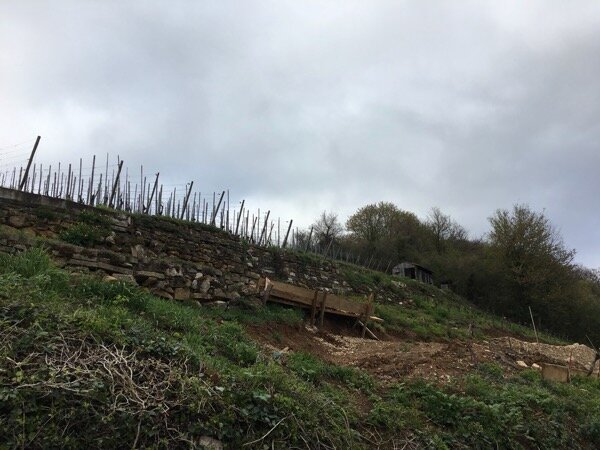by Al Drinkle
It was back in the days when people travelled; you know, those bygone times when you could eat in restaurants while travelling... It seems like a million years ago, but it was actually mid-February. I was sitting in a Scandinavian-influenced breakfast place in Portland at 8 am, enjoying a drink and wondering why Calgary's bylaws prohibit the service of alcohol at such a beautiful hour for imbibing.
At first I couldn't believe my ears. Coffee was percolating, food was sizzling in frying pans, people of all ages were shuffling in from the cold for aamiainen, and there it was, blasting out of the speakers like an unholy alarm clock. Somebody's idea of a welcoming breakfast soundtrack was Songs the Lord Taught Us by The Cramps!. I love breakfast, and I love the Cramps, but it had never occurred to me to combine them. And far less important than whether or not it was a successful combo (it was for me, but it almost certainly wasn't for most guests) is the fact that someone had the conviction to play exactly what they felt like playing, regardless of how outrageous the selection and unorthodox the hour. They knew that it was the right thing to do, despite the paucity of Yelp reviews that read, “great food but the music should be more obnoxious.”
Similarly, nobody has ever said to us, “I love your French and American options, but can't you sell me a Pinot Noir from somewhere more stereotypically vilified? Maybe Germany? Oh, and make sure it's expensive, please.” We are well aware of the challenge that we're taking on, but we know that it's the right thing to do for our province. The moment that these wines pass your lips, you'll be a better person. You just have to trust that we've burdened ourselves with the sales of these obscure wines because we think that they're eminently rewarding, not because we're a bunch of elitist jerk-offs trying to peddle you needlessly esoteric wine as some warped pursuit of self-expression.
Baden is a large, heterogeneous region in southwestern Germany, directly across the Rhein from France's Alsace. It's bordered to the east by the idyllic Black Forest, and some of the wines on offer come from vineyards with a vantage point of Strasbourg, France to the west and Basel, Switzerland to the south. Historically, its most celebrated wine was Gutedel, aka Chasselas, from the Markgräflerland (we've got one for you), and despite the fact that Baden's current commercial output is fuelled by cooperatives making relatively uninteresting wine, the region is celebrated domestically for its world-class Pinot Noir and its contributions to the “natural wine” scene.
German Pinot Noir? F yah! They call it Spätburgunder, and next to France and the USA, Germany makes more of it than any other country. And they're not just chasing trends; the grape has been cultivated here for hundreds of years (the year 884 CE is commonly cited but almost certainly apocryphal, though references in the 14th and 15th centuries have more validity). But the Germans love their red wine, and we had to fight for these allocations…
The salient point here is that most of you already love Pinot Noir, and though the provenance of these might seem strange, the wines are entirely appealing and delicious, and incredible value for the admittedly high prices. The whites are less orthodox but hugely attractive, especially for lovers of “natural” wine or skin-contact whites.
***(Please note: I visited both of these producers on the same day, approximately one year ago. That evening I disseminated an email to Richard that comprehensively embodies my enthusiasm for these wines, but contains far more expletives than we’re comfortable sharing with you here. If you’d like an unbridled version of my initial reviews, and you’re not easily offended, please email us and we will be happy to share it with you.)***
Enderle & Moll
Sven Enderle and Florian Moll established their winegrowing partnership in 2007 and have since become the epitome of low-tech winemaking in Germany. This is quite literally a “garage” winery. They farm biodynamically and intervene minimally, producing wines that exude everything that can be attractive from working with whole clusters - on both reds and whites. The wines are vivid and high-toned, evanescent and spiritual as opposed to precise and terrestrial, and the Pinot especially must be experienced. A more extensive selection from these guys will be arriving in early autumn.
2018 Enderle & Moll Müller $28
This is really two versions of Müller-Thurgau combined in one wine. Half is from Brauneberg in the Mosel where their buddies ferment in stainless steel at cool temperatures, ending up with a dry, neutrally-flavoured wine with the raciness of Riesling. It then gets trucked to Baden to be blended with E&M’s Müller that’s fermented on its skins for a couple of weeks, achieving opulent, almost tropical aromatics and a juicy, pithy mouthfeel. It's a wacky idea but it's really delicious, the result being delightfully zesty for an “orange” wine but with a textured and eccentric side to it. Perhaps everything that's potentially exciting about Müller was just hanging out in the skins, waiting to be discovered!
2016 Enderle & Moll Spätburgunder "Liaison” $46
When you look at where Baden is on a map (as opposed to Burgundy, the Willamette Valley or Sonoma, for example), this is exactly what you might want and expect a Pinot Noir from here to taste like. Whereas the most famous examples are dark, alcoholic and oaky, this is light and ethereal, highly aromatic in the red berry idiom and boundlessly fresh, like if Georges Descombes made Pinot Noir. But because of its celestial charm, basic descriptors elude me… maybe Chekhov could find the words.
Wasenhaus
Christoph Wolber and Alex Götze met in Burgundy where, considering their age, both of them have an incredible amount of experience (and the latter still works full time at Domaine de Montille). But as opposed to attempting to emulate Burgundy, they are excited and proud about what Pinot Noir can do in southern Baden. At under two hectares of land, this is without question the tiniest producer that we work with, and the 2017s on offer are from their second commercial vintage. Like Enderle & Moll, they farm organically and work with high proportions of stems, the wines eventually aging in used Burgundy barrels acquired from their friends across the French border (apparently their experiments with Domaine de la Romanée Conti barrels weren't as successful as they had hoped!). The wines are breathtakingly gorgeous and gracefully northern, with precisely delineated parameters and loaded with fruit and flowers.
2018 Wasenhaus Gutedel $39
Gutedel is Chasselas, the traditionally important grape of Baden and of Switzerland 40 minutes to the south. It generally produces innocuous, even uninspiring wine, but this is a zany exception. Half of the fruit is directed-pressed and fermented in 600L wooden barrels, while the other half underwent a two-week maceration on skins. It's perfectly ripe at 9.5% alcohol, light but intense with a sprig of wintergreen and a twist of citrus. Dry and satisfying with a sticky, insect-feet texture and abundant turbidity, this is the new boyfriend that fondue brought home to piss off her parents.
2019 Wasenhaus Spätburgunder "Baden Nouveau” $39
Too much fun… carbonic maceration Pinot Noir that's in bottle by November with zero added sulphur. It smells like raspberry juice and reminds me of when rosé wine used to have flavour. Don't open it too long before dinner or you'll accidentally smash it out before the food hits the table. However strict your definition of “natural wine” might be, this fits it, and quenches thirst at the same time.
2017 Wasenhaus Spätburgunder $49
The delicacy and buoyancy does nothing to belie Pinot at its northern extreme, but it's exceedingly eloquent in its communication of flavour, and loaded with plummy fruit. Lovers of the grape absolutely must try this, and compared to other international benchmarks that you’ll find at this price, the value is exceptional.
2017 Wasenhaus Spätburgunder "Vulkan” $76
Slim and strutting Pinot from the volcanic soils of Baden's Kaiserstuhl subdistrict. There's gossamer spice and a lacy panoply of red berries interwoven through kaleidoscopic but vivid layers of flavour. Rarely have I encountered such a compelling confluence of cerebral complexity and utter drinkability… I took a bottle home and would have assessed it more carefully in order to offer you an articulate tasting note, but the bottle was empty in about 35 minutes and I can only tell you that I loved it and wished it were a magnum.






